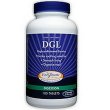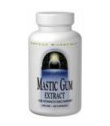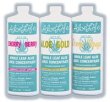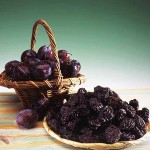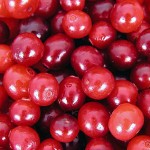 What are Ulcers?
What are Ulcers?
Peptic ulcers affect the stomach and the duodenum (the upper part of the small intestine.) The stomach and the duodenum produce large amounts of gastric juices. These juices need to be strong in order to break down food into particle that are digestible. To protect the stomach and duodenum walls from these harsh gastric juices, they are covered a thick mucus layer. When this lining is weak some of the stomach tissues may be eroded. An eroded spot is called a peptic ulcer.
Who Gets Ulcers?
Stress increases the output of these gastric juices. Therefore if you have an ulcer keeping your stress levels to a minimum and or implying relaxation techniques.
Drugs especially aspirin and non-steroidal anti-inflammatory drugs called NSAIDs, are notorious for causing stomach ulcers. People who take these medications on a regular basis often suffer with ulcers. Smokers have a higher frequency of getting ulcers than non smokers. Food allergies, and digestive disorders are other common culprits. A bacteria called Helicobacter pylori has been strongly linked to ulcer formation. The elimination of H. pylori often times helps with healing. Antibiotic therapy and natural therapies can help with this. Supplementing with a good Probiotic is also essential. If you take antibiotics. This will help to restore friendly bacteria that the antibiotics destroy.
What are the Symptoms of Ulcers?
The symptoms of ulcers are; burning or gnawing pain in the upper abdomen, which usually occurs when the stomach is empty, or about an hour after eating. Nausea, vomiting, loss of appetite, and also increased appetite are also symptoms.
What are the Root Causes of Ulcers?
Food allergies, stress, medications, smoking, alcohol, and an infection of H. pylori are the main causes. *If you have dark or bloody stool of vomit, or intense abdominal pain that doesn’t go away, you might have a bleeding ulcer and should consult your doctor immediately!
Natural Remedies.
Eating small meals throughout the day is recommended. Keep your diet high in fiber, cabbage juice, a green leafy vegetables. Consume garlic with your meals as this may help with the H. pylori bacteria. Avoid sugary, spicy, foods, citrus juices, coffee, black tea, and alcohol. Practice deep breathing techniques and other relaxations techniques to keep your stress down. More natural remedies for ulcers below.
|
|
DGL– Chew 500 mg – 1,000 mg tablets twenty minutes before meals or in between meals three times a day. DGL stimulates the regeneration of the mucus lining, and also has anti-inflammatory effects. |
|
|
Mastic Gum– Take 500 mg three times a day. Studies have shown that mastic gum which comes from the mastic tree can kill the H. pylori bacteria, and also aids in healing ulcers. |
|
|
Aloe Vera Juice– Drink 1/4 a cup three times a day. Aloe juice has anti-inflammatory effects, and helps to repair the lining of the intestinal tract. Also Vera juice also antimicrobial benefits. |
|
|
Slippery Elm– Take 500 mg three times a day in between meals. Slippery Elm has a great healing effect on the lining of the digestive tract. |
|
|
Probiotic– Take a probiotic that contains at least 4 billion active organisms twice daily once in the morning, and once at night on an empty stomach. |
*Please check with your doctor before taking any supplements, and also read the warning labels on each product, especially if you are pregnant or breast-feeding. Also read the labels carefully when giving your child any natural supplement, to ensure that it is safe to give a child.
